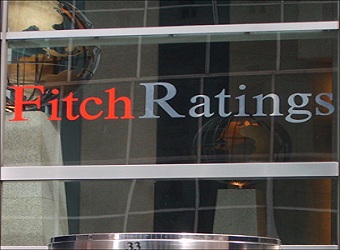Fitch: Egypt hopes to lure Billions of Dollars in Investments during Economic Summit
In response to Daily News Egypt’s questions, Paul Gamble, the director of sovereign group Fitch, said the Gulf state’s support to Egypt’s economy will be in the form of FDI, rather than direct payments.
Egypt is slowly reclaiming credit ratings it has lost over the years of political uncertainty and unrest, as the economy gradually responds to extensive revival attempts. In December, Fitch Rating Agency made its most recent recognition of such economic recovery, when it upgraded Egypt’s rating to B from B-, with a stable outlook.
According to Paul Gamble, a new investment law, settlement of disputes with investors, and potentially reforming legal and taxation frameworks are some of the measures needed in order for Egypt’s rating to climb. The next rating review is expected on 19 June.
In response to Daily News Egypt’s questions, Gamble said the Gulf state’s support to Egypt’s economy will be in the form of FDI, rather than direct payments.
Egypt hopes to draw in billions of dollars in investments during the Economic Summit. How efficient do you think the country’s efforts are to market investment opportunities and lure investors amid the recent surge in violence?
Investor tolerance to risk varies. It is likely that some are concerned about potential instability, but for others the opportunities outweigh the risks. For example, offshore oil and gas is a potentially attractive investment opportunity and has not been affected by unrest.
In Fitch’s report issued in December, one of the main factors mentioned that could lead to a positive rating action was reforms to the business environment that lead to increased investment. What does the government need to do in order to achieve this? What laws need to be issued, or enacted?
This would include a new investment law, settlement of disputes with investors and potentially reforms to the legal and taxation frameworks. We place emphasis on the World Bank’s Doing Business indicators and measures to improve Egypt’s standing on this would clearly be supportive to the business environment.
With oil prices expected to remain significantly low throughout 2015, reports of a flip in Saudi Arabia’s foreign policies following the demise of King Abdullah, as well as recent alleged leaks that could harm ties between Egypt and the oil-rich states, how likely do you think that GCC aid will be affected by the previous factors? How would this affect Egypt’s fiscal situation?
A stable Egypt is important for many countries in the GCC. Even before the fall in oil prices it was likely that there would be less direct budget and balance of payments support for Egypt and greater FDI from the Gulf. We still think this will be the case. In the event of serious financial strains re-emerging, direct GCC support is expected.
In Fitch’s latest report, the IMF lending programme was not taken into consideration in the forecasts. However, the report said the programme would easily be achieved if required by the authorities. How would the programme change the forecasts, if achieved? Are you aware of why it has not been sealed yet?
In our opinion, a deal has not been agreed on with the IMF because the government does not feel the need to have one. The reforms the government has undertaken are similar to those that would have been required by the Fund as part of a programme. However, the involvement of the IMF does cause political difficulties for some governments, as voters assume that the policies are forced on the government by the IMF. In Egypt’s case, it is clear that it is a home-grown programme of reform. If there was an IMF programme it would not affect our expectations for economic growth, but it would provide a predictable source of external revenues.
There are countless reports that the Egyptian army is siphoning much of the FDI flowing into Egypt, as well as being involved, directly and indirectly, in important projects. How do you think this affects winning investors’ confidence in the investment atmosphere?
Investors will consider many aspects before they decide whether they are comfortable with the investment climate.
Fitch’s report has praised measures taken by the government such as cutting fuel subsidies and introducing new taxes such as VAT. How can the government work on fixing fiscal imbalances without adding excessive financial burdens on citizens? With underlying political tension, does this not add to risks of fresh protests similar to 2011?
The government is using some of the new revenues it raises and savings it makes to finance programmes that will specifically benefit less well-off sectors of the population in order to insulate them from the full effects of the reforms. The government is aware of the political climate and has designed its programme to minimise social disruption. If the reforms lead to stronger growth and more employment opportunities, it would support social stability.
How do you see the current value of the Egyptian pound? Do you think it will remain this low, or do you predict it will recover its value, and why?
We think a further fall in the pound is likely, even after the recent move. This is because the strong dollar and differential in inflation with trading partners means the currency looks over-valued.
What other measures does the government need to take in order to achieve “a track record of progress on fiscal consolidation leading to a decline in debt/GDP” and “sustained economic recovery”?
Implementing all the policies it has laid out for the next few years should help with fiscal consolidation. Broader reforms to business environment, such as a new investment law, are important to sustain the economic recovery.
Date foreign Currency long term rating Outlook
28 January 2011 BB+ Negative
3 February 2011 BB Negative
28 June 2011 BB Rating Watch
30 December2011 BB- Negative
15 June 2012 B+ Negative
5 July 2013 B- Negative
4 January 2014 B- Stable
19 December 2014 B Stable


